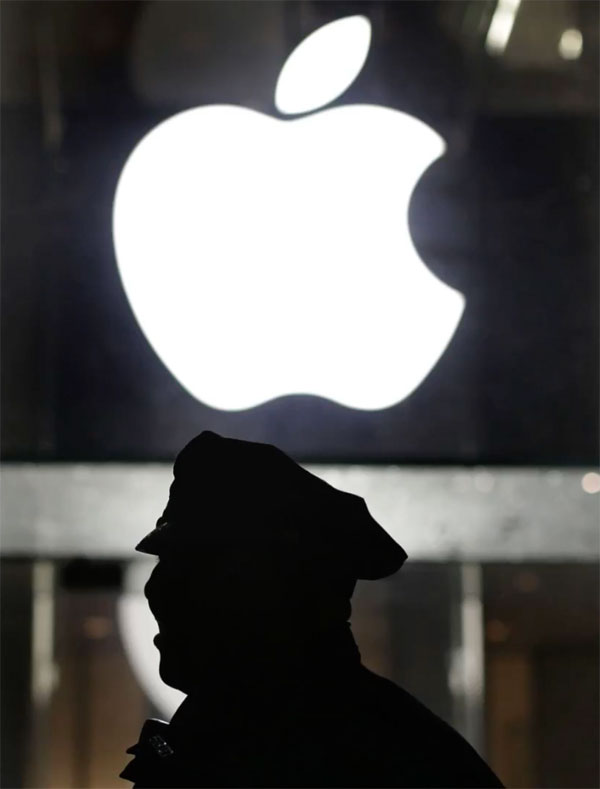
By Olivia Beavers, THE HILL
FBI Director Christopher Wray stated Tuesday that the inability of law enforcement agencies to surpass the strong encryptions on electronic devices poses an “urgent public safety issue.”

Wray said that during the last fiscal year, the FBI failed to break through the powerful protective coding of 7,775 devices, even though they had advanced tools at their disposal and the legal right to access the contents.
“While the FBI and law enforcement happen to be on the front lines of this problem, this is an urgent public safety issue for all of us,” Wray said during a speech at the International Conference on Cyber Security (ICCS) in New York.
“Because as horrifying as 7,800 in one year sounds, it’s going to be a lot worse in just a couple of years if we don’t find a responsible solution,” he added.
(On Tuesday, the FBI Director said that law enforcement’s inability to access electronic devices due to powerful encryption is an “urgent public safety issue,” in remarks aimed at rekindling a contentious debate over people’s privacy and security. Both technology companies as well as many digital security experts claim that the FBI’s attempts to order all devices to have a way for investigators to access a criminal suspect’s phone would harm internet security while also empowering malicious hackers. Courtesy of Wochit News and YouTube. Posted on Jan 9, 2017)
The FBI chief said the inability to access cellphone data that is “going dark” would impact FBI investigations across the board including counterterrorism, counterintelligence, human trafficking and organized crime.

Wray, who took over as the head of the FBI in August, said the law enforcement community needs to urgently come up with a solution on encryption and that it must both “need and want the private sector’s help.”
“It will require a thoughtful and sensible approach, and may vary across business models and technologies, but—and I can’t stress this enough—we need to work fast,” he said.
“We need them to respond to lawfully issued court orders, in a way that is consistent with both the rule of law and strong cybersecurity.”
“Let me be clear: The FBI supports information security measures, including strong encryption.”
“But information security programs need to be thoughtfully designed so they don’t undermine the lawful tools we need to keep this country safe,” Wray said.
(FBI agents have gotten hold of the cell phone belonging to the gunman who killed 26 people in a Texas church. Christopher Combs, the special agent leading the investigation into the shooting, told reporters. “They’re in the process of looking at the phone. Unfortunately, at this time, we are unable to get into that phone.” Investigators are hoping the phone contains clues that could help explain Devin Kelley’s motive. The FBI’s inability to gain access into Kelley’s phone recalled the agency’s dispute with Apple. That dispute came in the aftermath of the 2015 mass shooting in San Bernardino, California. Courtesy of Wochit News and YouTube. Posted on Nov 7, 2017)
The FBI has long argued that law enforcement should have the ability to pry open cellphones as a way of protecting domestic security.
Attorney General Jeff Sessions and Deputy Attorney General Rod Rosenstein have repeatedly called for tech companies to design encryption systems that still allow law enforcement access, an argument also made during the Obama administration.
(Former FBI director James Comey discussing the threat posed by terror groups’ use of encrypted communications and how to balance public safety and privacy. Courtesy of CBS News and YouTube. Posted on Dec 16, 2015)
Such efforts have been resisted by tech companies and privacy advocates.
Original post http://thehill.com/policy/cybersecurity/368094-fbi-chief-warns-impenetrable-device-encryption-poses-urgent-public
Learn More…
Is Apple Targeting Law Enforcement with Touch ID Disabling Feature?















